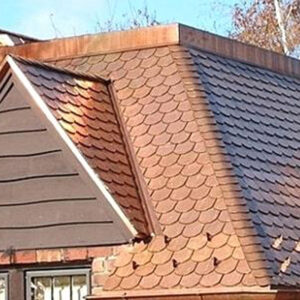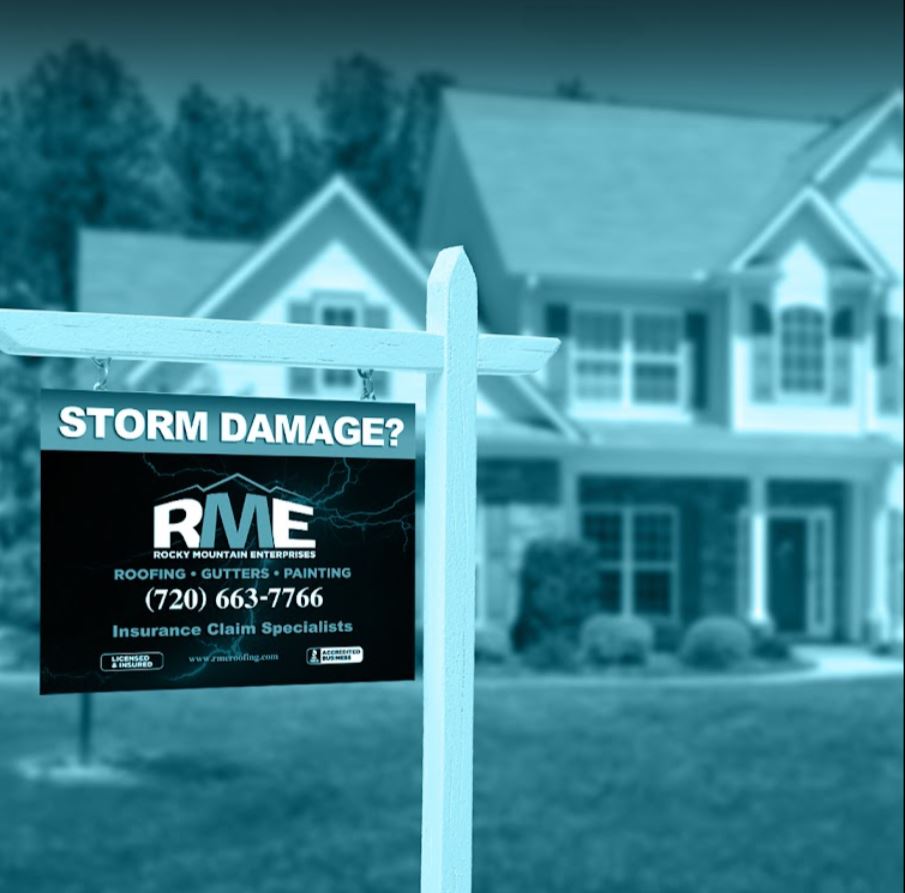Metal roofs are among the most durable and long-lasting types of roofing materials out there. They’re typically used for commercial buildings because they offer many benefits over traditional asphalt shingle roofs. Here are just a few reasons why metal roofs are better than asphalt shingles: 
- Durability – Metal roofs tend to last longer than asphalt shingles, requiring less maintenance. This makes them ideal for commercial properties where heavy foot traffic and harsh weather conditions are expected.
- Low Maintenance – Because metal roofs last longer than asphalt shingle roofs, they require far fewer repairs and replacement costs. In fact, according to the National Association of Home Builders, metal roofs can last up to 40% longer than asphalt shingle roofing.
- Versatility – A wide array of different designs and colors give metal roofs versatility. You can customize your roof with various options to fit your style and personal preference.
- Ease of Installation – Installing a metal roof is more straightforward than installing asphalt shingles. Most metal roof systems come preassembled, making installation quick and easy.
- Energy Efficiency – Metal roofs help reduce energy loss during winter months due to their ability to reflect heat away from the structure.
While metal roofs aren’t the cheapest choice for homeowners, they provide significant value for businesses and commercial properties.
Benefits and Advantages of Metal Roofing
Metal roofing is the primary type used on structures built during the Great Depression because of how well they stood up against harsh weather conditions. Metal roofs are durable, long-lasting, attractive, and energy efficient. They’re also one of the most robust roofing systems out there, making them ideal for high winds and heavy snow loads.
There are various kinds of metal roofing options, including galvanized steel, aluminum, copper, zinc, tin, stainless steel, and others. Each type offers advantages and disadvantages depending on the environment where it’ll be installed. Some metals, such as aluminum, require additional maintenance, while others, like zinc, are naturally resistant to corrosion.
Longevity
Metal roofing is one of the longest-lasting materials you can use for your roof. Some experts say that metal roofing lasts up to twice as long as asphalt shingle roofing. And depending upon the type of metal used, most metal roofs are guaranteed to last 50+ years without showing any signs of degradation or corrosion, even under extreme weather conditions.
Durability
Metal roofs are becoming increasingly popular among homeowners looking to add value to their homes without spending too much money. They offer many advantages over traditional roofing options, such as asphalt shingles and clay tiles. Metal roofs can last up to 50 years or longer, depending on the type you choose. In Colorado, metal roofs can cost anywhere from $7-$12 per square foot.
Maintenance
A metal roof requires very little maintenance. While it requires general upkeep, such as checking for leaves, branches, etc., it doesn’t require much beyond that. If you live in a dry climate, you’ll want to check the gutters regularly for clogs and debris. You might also want to look for signs of leaks. A leaky roof can lead to water damage within the home.
Rust can cause serious problems if left unchecked. For example, rust can weaken the roof’s structural integrity, leading to issues like leaking and tearing. It can also make the roof heavy enough to pull away from the house, causing further damage. If you notice any spots of rust, you’ll want to take care of those immediately.
Eco-Friendly
Metal roofs are often considered eco-friendly because they require less maintenance and energy than traditional asphalt shingle roofs. However, some metal roofs still rely heavily on petroleum-based components, such as zinc, copper, and steel. But now, certain metal roofing materials are made of recycled content and do not include any petroleum-based ingredients. Here are five examples of metal roofing materials that contain recycled content.
-
Aluminum
Aluminum is one of the most widely used metals in construction due to its lightweight, low cost, and high strength. It is the second most commonly used material in the world after iron. And while aluminum does require some maintenance like regular cleaning, it is much easier to clean than many other metals. Aluminum is also easily recyclable, making it particularly attractive for manufacturers to recycle. Some companies offer recycling programs where they collect leftover scrap aluminum and turn it into a new product. For example, General Motors offers a program called Alumax, which collects aluminum from auto parts suppliers and converts it into new car parts.
-
Copper
Copper is another common building material that is very easy to recycle. Most copper roofing systems can be disassembled and resold without much damage. This makes it possible for manufacturers to recover copper from old roofs and sell it again. The National Center for Construction Resiliency conducted a study and found that up to 70% of copper roofing could be recovered and reused.
-
Zinc
Zinc is another metal that is relatively easy to recycle. While zinc requires some maintenance, it is generally considered to be the easiest type of metal to maintain. Many manufacturers use zinc as part of their roofing system because it provides excellent durability and resistance to weather conditions.
Lower Cost in the Long-Term
Metal roofs are often touted as being less costly than asphalt shingles over the long term because they don’t require reroofing like asphalt does. This isn’t necessarily true, however. While it’s true that metal roofs do not typically require reroofing, there are exceptions. For example, living in Colorado, a region where hailstorms occur frequently, you’ll want to invest in a metal roof that can withstand severe weather conditions. If you’re thinking about installing a metal roof, talk to a professional roofer at RME Roofing today. We can help you decide whether metal is the best option for your home.
Warranties
One of the best parts of having a metal roof installed is the variety of warranty choices made available by metal manufacturers. There are many different types of warranties available, and each one offers specific benefits based on the project size, location, and environmental conditions. A few of the most popular include:
* Paint warranties:
These warranties cover the exterior finish of the metal panels against fading, chalking, peeling, blistering, flaking, etc. They do not cover rust damage. This type of warranty is typically offered for residential roofs painted with an oil-based primer coat before applying the final coating.
* Weathertight warranties:
These warranties offer coverage for water intrusion into the roof structure and decking. Typically, this warranty covers leaks in the roofing membrane and flashing systems. For example, it could cover a leak in the flashings around the perimeter of the building.
* Metal roofing manufacturer warranties:
Some metal roofing companies offer their own warranties covering defects in the product. They usually require that the customer purchase a separate insurance policy that protects the metal roofing manufacturer against liability claims.
* Manufacturer’s limited warranty:
Most metal roofing manufacturers offer a limited warranty for defective products. However, the terms and conditions of the warranty vary widely, so always check the fine print carefully.
* Roofing contractor limited warranty :
If a roofer installs your metal roof, they are required to carry their own insurance policy that covers the quality of the installation. Many states require contractors to carry general liability insurance, while others require specialized roof installer insurance policies.

